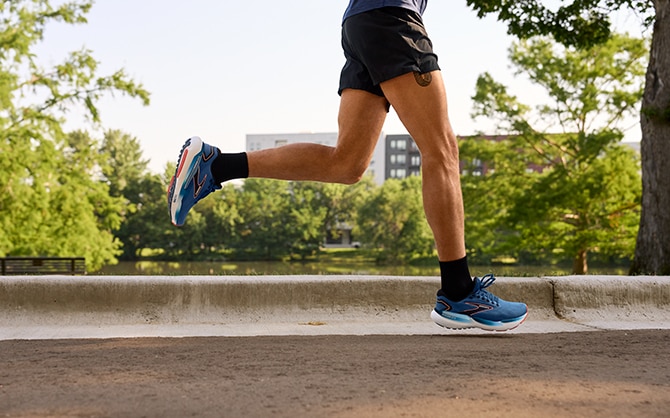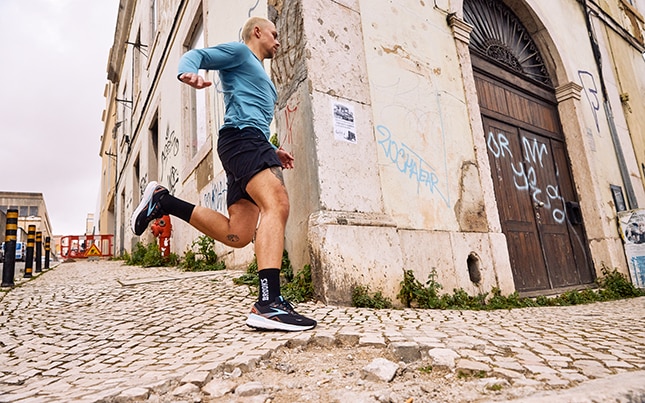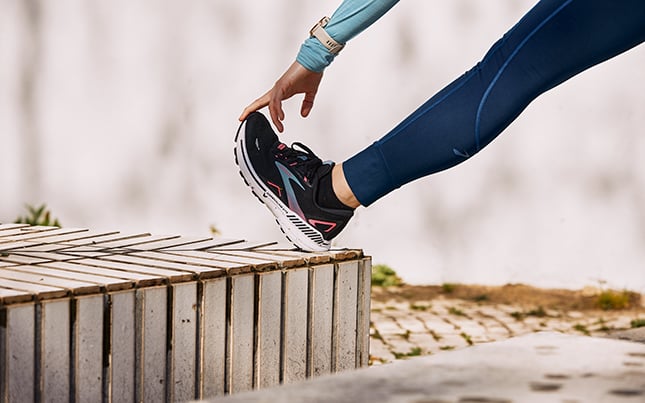More than the foot: the science behind how GuideRails™ technology supports your run

Shoes with our GuideRails system help the knee and the foot work more effortlessly together.
What does GuideRails support technology do for runners?
Do you remember the first bike you got when you were a child? Chances are that bike had stabilisers on it. These little wheels attached to the back wheel help stabilise the bike, allowing for a smooth, straight ride.
Similar to how stabilisers keep a bike from falling over to one side or the other, GuideRails support reduces excess shin and heel rotation to keep your natural knee motion in a safe range so you can run with more comfort and less pain. This holistic support system allows your body to embrace its natural motion path while limiting excess motion.

So, what is the GuideRails support system?
While the idea of tiny shoes attached to each side of your pair of Brooks Adrenalines is pretty funny, it’s not visually accurate — the stabiliser analogy is happening inside the shoe.
The system is made of two firm pieces of foam on either side of the heel. On the inside of the heel, the foam reduces the rolling of the foot inward. On the outside of the heel, the foam is both firmer and higher, reducing the shifting of the heel in the outward direction.

Central to the GuideRails support system is the relationship between the knee and ankle, or what we call “coupling”. The system focuses on alignment and ensures the right parts are in the right places during your run.
We created the GuideRails technology to work with your Run Signature, which is how your body moves while on the run. We recommend neutral shoes for runners whose running motion is in line with their baseline movement. For those whose running motion deviates from their own personal baseline, we recommend shoes with GuideRails support.
Which shoes have GuideRails technology?
We currently have five shoes featuring GuideRails technology:

Looking for cloud like cushion? Find lasting comfort in the Glycerin GTS. Its midsole with DNA LOFT v3 cushioning provides our softest-ever ride without sacrificing responsiveness or durability. Glycerin GTS

Our go-to shoe for more than 20 years, the Adrenaline GTS has DNA LOFT v3 foam to deliver soft and smooth cushioning. Adrenaline GTS

A springy ride and quick transitions, the Launch GTS has a lightweight feel that you'll love with GuideRails support. Launch GTS

The Beast men’s running shoe and Ariel women’s running shoe are lighter than ever and offer a soft, cushioned ride. Men’s Beast Women’s Ariel
Want to learn about our other technologies?
Our super smart biomechanics experts, product developers, and insights researchers collaborate to make the best running gear in the world. Explore the innovative technology that goes into our shoes and apparel, or learn more about our approach to research and product testing.

